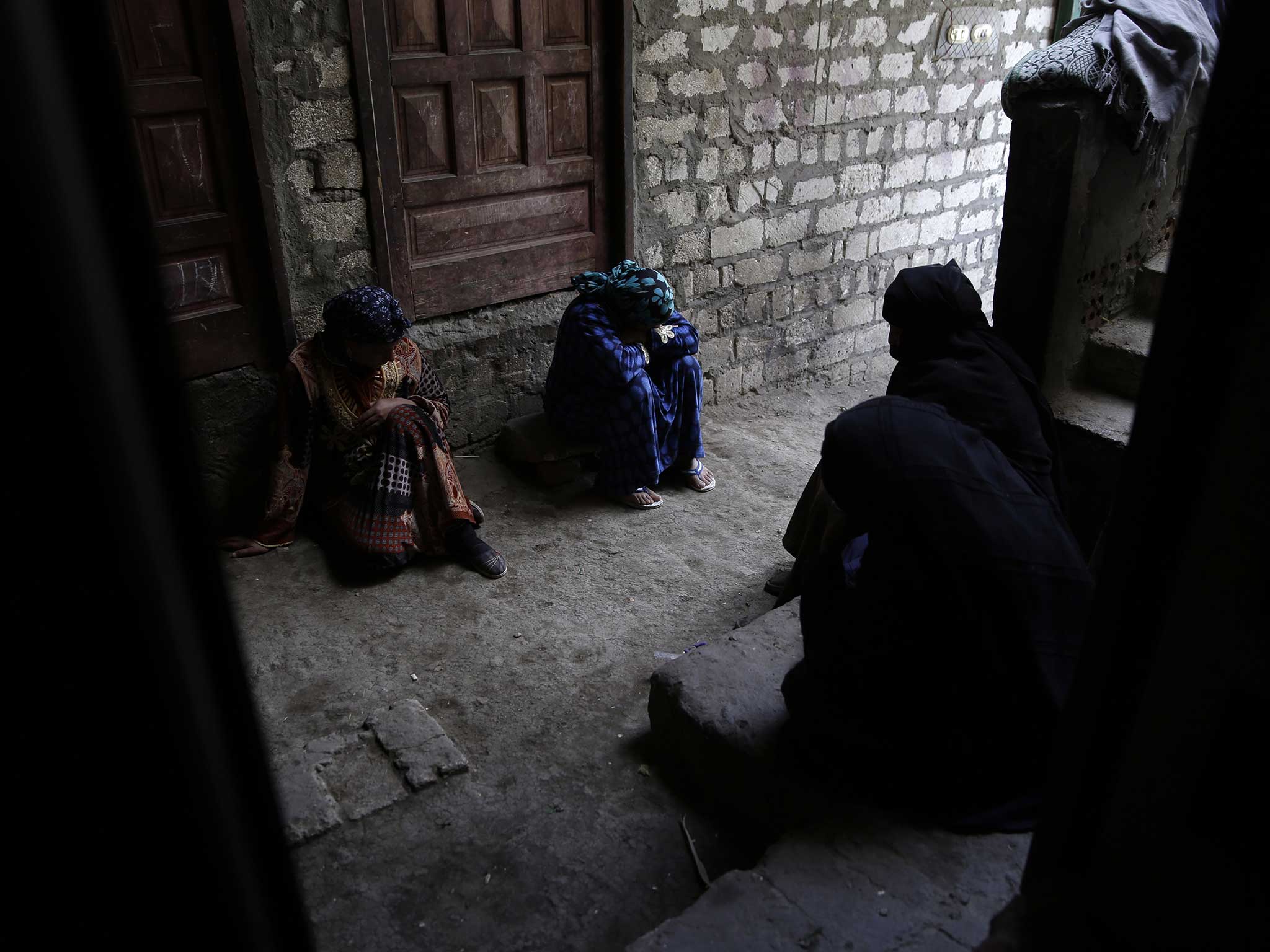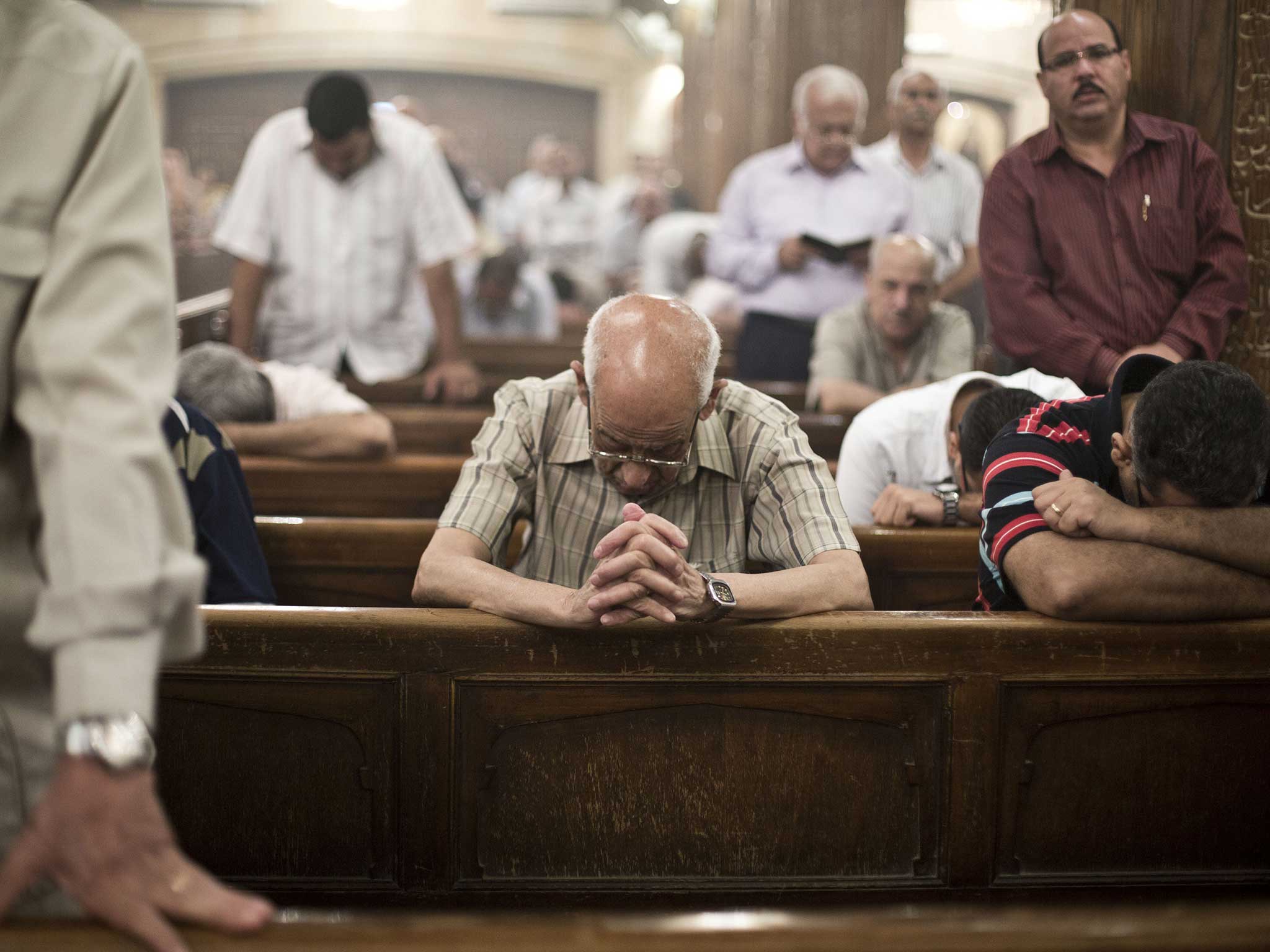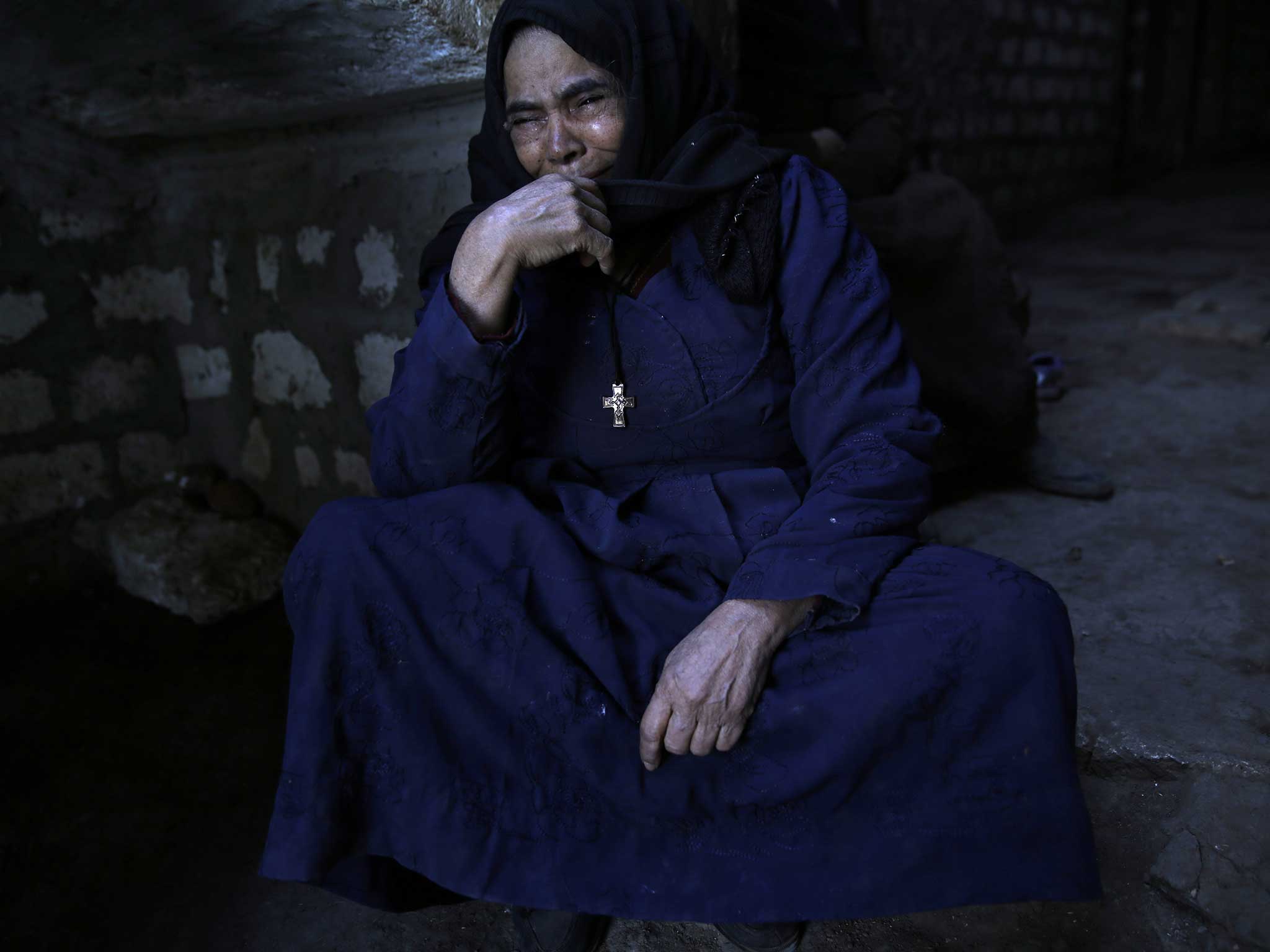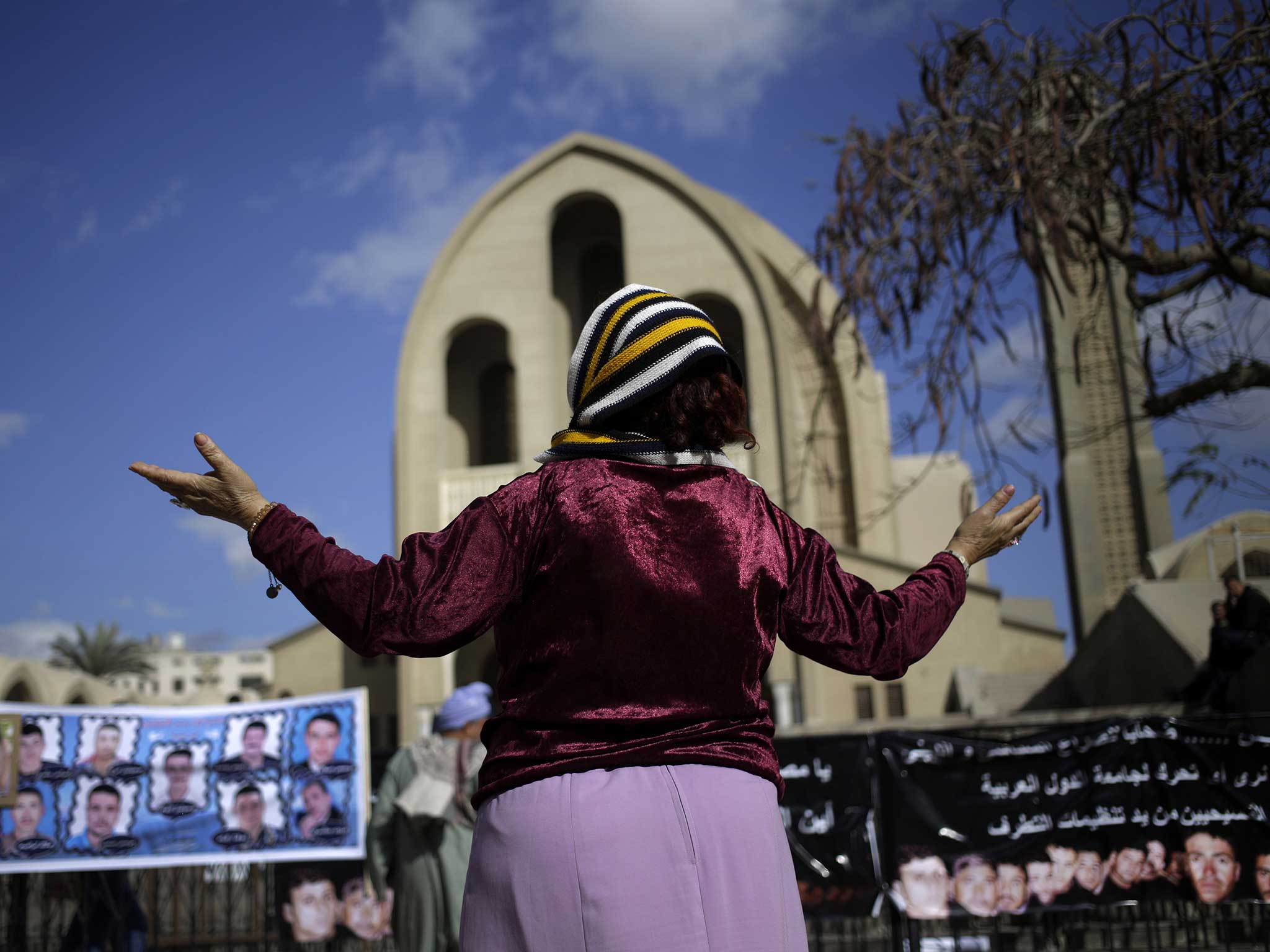Coptic Christians: Who are they – and why have then been targeted by Isis in beheading video?
Coptic Christianity is believed to have been established around AD 42

Your support helps us to tell the story
From reproductive rights to climate change to Big Tech, The Independent is on the ground when the story is developing. Whether it's investigating the financials of Elon Musk's pro-Trump PAC or producing our latest documentary, 'The A Word', which shines a light on the American women fighting for reproductive rights, we know how important it is to parse out the facts from the messaging.
At such a critical moment in US history, we need reporters on the ground. Your donation allows us to keep sending journalists to speak to both sides of the story.
The Independent is trusted by Americans across the entire political spectrum. And unlike many other quality news outlets, we choose not to lock Americans out of our reporting and analysis with paywalls. We believe quality journalism should be available to everyone, paid for by those who can afford it.
Your support makes all the difference.The latest video purportedly released by the terror organisation Isis claims to show the execution of 21 Egyptian Coptic Christians in Libya. The mass beheading prompted an immediate response from Egypt, who launched air strikes against the jihadist group in Libya.
The beleaguered government, currently in the midst of a chaotic civil war with Islamic factions, has condemned Egypt's actions, claiming the strike was an attack on the country's sovereignty.
Who are the Egyptian Coptic Christians?
Despite originating in Egypt, the religion has a worldwide following, with populations of Coptic Christians existing in the United States and Britain, as well some African nations, such as Sudan.
Why have Isis claimed to have targeted them?
The video, titled 'A message signed in blood to the people of the cross', makes reference to the "hostile Egyptian Church". It also claims to be a response to the alleged treatment of Camilla Shehata, the wife of a Coptic priest whose alleged conversion in 2010 sparked a sectarian dispute. Isis, also known as the Islamic State, claim that the woman was held against her will, post conversion.
Specifically, the men involved in the video claim that these "crusaders" will have their blood mixed in the "sea you have hidden Sheikh Osama bin Laden’s body in".
Do Copts have strong roots in Egypt and the Middle East?
Absolutely. The Copts were a vibrant – and secure – facet of Middle Eastern society but their position in Egypt has fluctuated with different rulers. After the country became Muslim the Copts faced widespread discrimination and limited economic prospects.
In the early 19th century their position improved dramatically under the stable rule of Muhammad Ali, however, the situation went south (again) in 1952 when Gasser Abdel Nasser came to power.
What happened?
By this point the Copts were one of the most economically powerful groups in Egypt, but this did not prevent Nasser undermining their religion (by closing religious courts, delaying church constructions and confiscating land and Church properties). Many Copts emigrated during the period, ending up in Europe and the United States.
Do they still face persecution today?

Copts in Egypt claim they still suffer discrimination and persecution today. The violence and instability that has engulfed Egypt in the past few years has undoubtedly adversely affected already marginalised communities.
In 2013 an Amnesty International report condemned internal security forces for failing to protect Christian churches, schools, and charity buildings from an angry mob in the wake of the dispersal of two pro-Morsi sit-ins in Cairo. The former elected president was deposed by present leader Addel-Fattah al-Sisi in 2013.
There have also been infrequent examples of local Muslim communities accusing Copts of various offences and acting outside of the law. There has been little redress for these Copts, with many claiming authorities turned a blind eye to their complaints.
Amnesty International's Egyptian research Mohamed Elmessiry told The Independent: "The discrimination is not in all parts of the country but it exist in some parts of the country.
"For example," he continued, "where there is a big population of Muslim brotherhood supporters. There is discrimination from the public but it depends where exactly and there is discrimination from the government to reconciliation with Muslim families."
He added that Amnesty had recorded "four or five" separate incidences involving persecution against Copts.
"We have documented cases when Copts were accused of insulting Islam and in these cases the Copts will be attacked by members of their villages and the government has done nothing," he added.
There have been some prominent Copts, the most well-known is probably Boutros Boutros Ghali who served as the sixth Secretary-General of the United Nations.
What is their status outside of Egypt?
It varies. In the US and Britain the situation is good. Elsewhere, such as Libya, it is less positive.
What is their status in Libya?

Copts form the largest Christian minority in the country, with an estimated 60,000 living there, but their status is increasingly precarious. The country's descent into civil war and chaos following the collapse of Mu’ammar al-Gaddafi’s dictatorship has seen the nation riven by rival extremist factions, with the government having little control. Italy recently pulled their embassy staff out - the last EU power to do so.
Prior to the latest atrocity, in February of last year seven Copts were dragged from their homes in the middle of the night and shot in the streets east of Benghazi. There have been a number of other reported incidents – involving other extremist groups such as Ansar al-Sharia – of violence against Copts in the country.
In December, reports circulated that an Egyptian doctor and his wife had been killed in Sirte, east of Benghazi on the coast, after their daughter had been kidnapped.
However, many Copts continue to leave in hope of better economic prospects. The father of a man held by Isis responded to a question on Egyptian TV on why would he leave, with: "Why would he stay in Egypt?"
Mr Elmessiry said the economic situation within Egypt was the biggest single motivation for Copts to leave, but added this was not unique. Many Muslims had also travelled in an attempt to find work.

What has been the reaction from Copts in Egypt?
Prior to the purported executions many of the families of those abducted had staged protests accusing the president of failing to act. In an interview with The Daily Telegraph, the families of some of the men abducted in January said they felt they had been left in the dark by Egypt's leaders.
President al-Sisi had promised before that Egyptians, many of whom travel to Libya to work as labourers in construction, would be airlifted out of the country.
Today, Wall Street Journal reported that al-Sisi planned to give each of the dead men's families 100,00 Egyptian pounds (equivalent to roughly $13,000).
Join our commenting forum
Join thought-provoking conversations, follow other Independent readers and see their replies
Comments